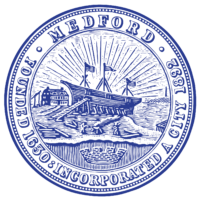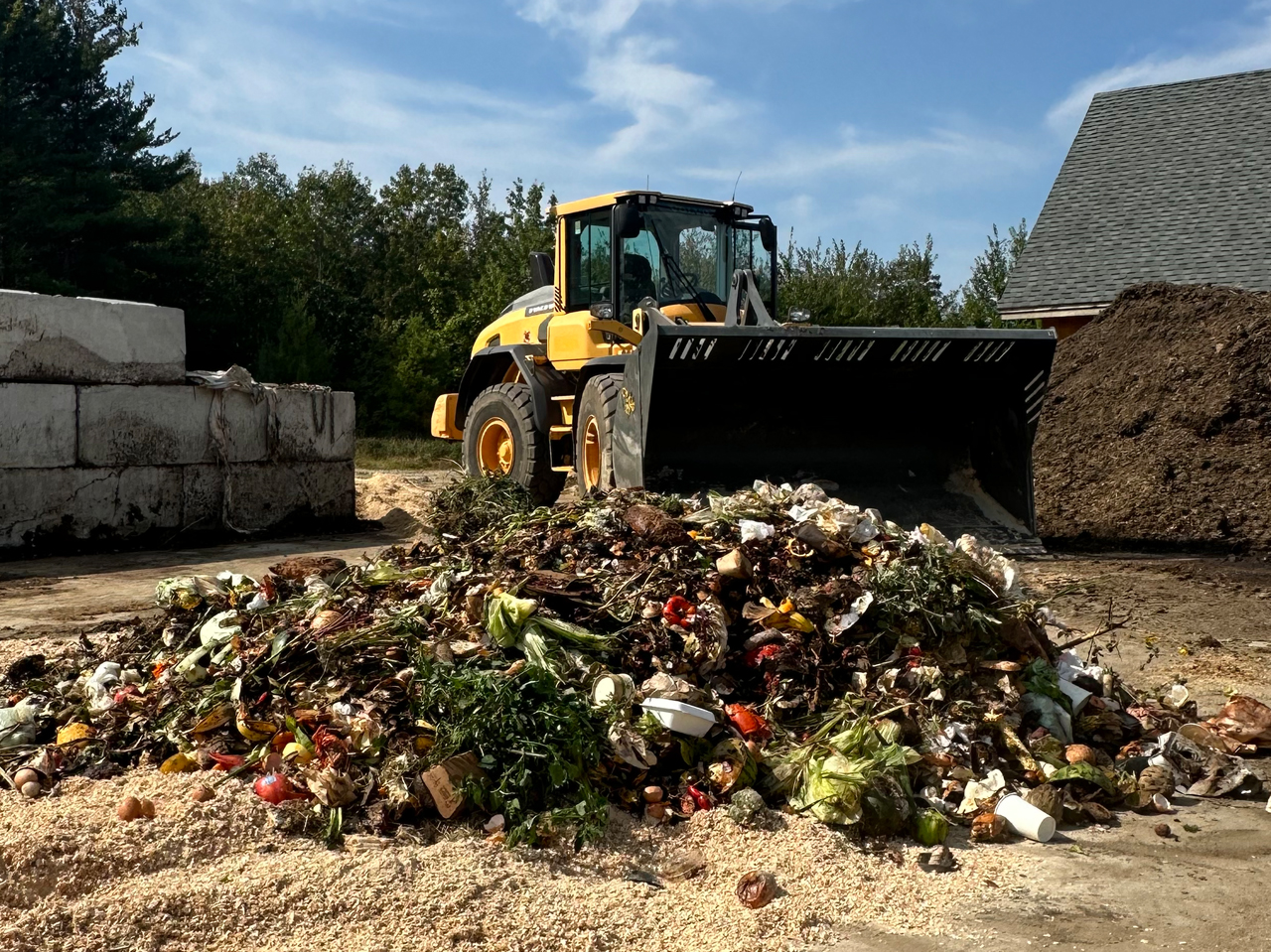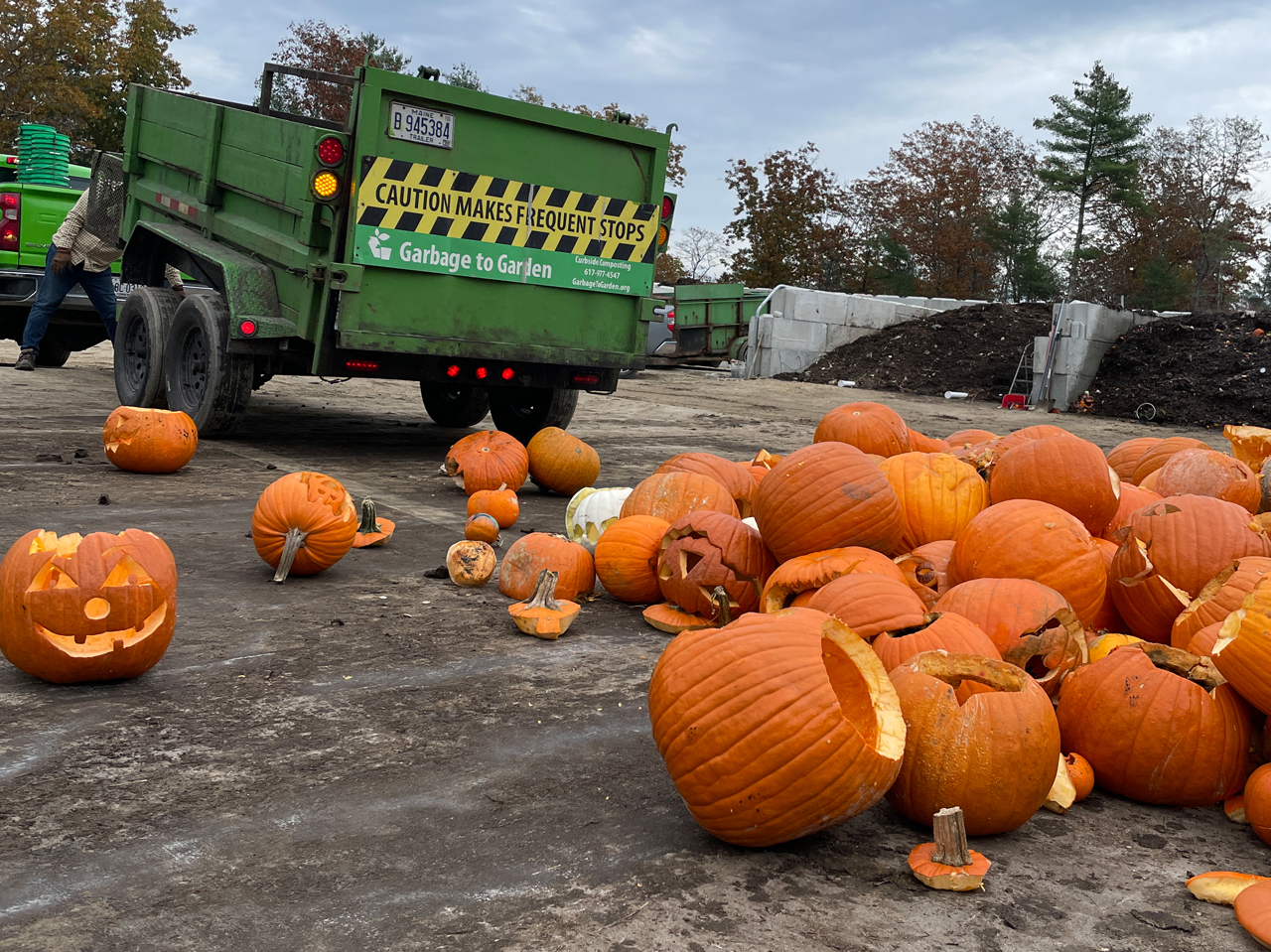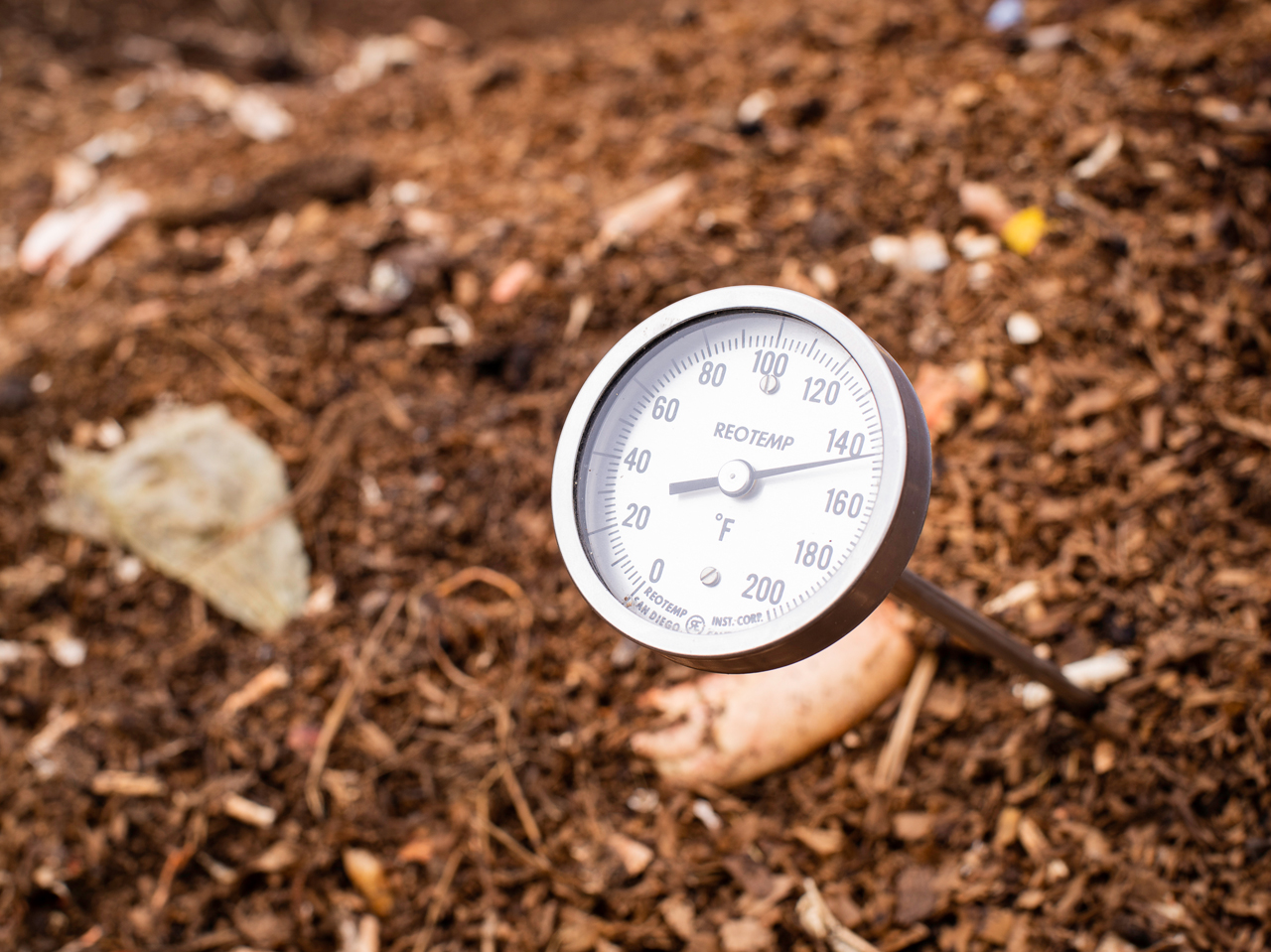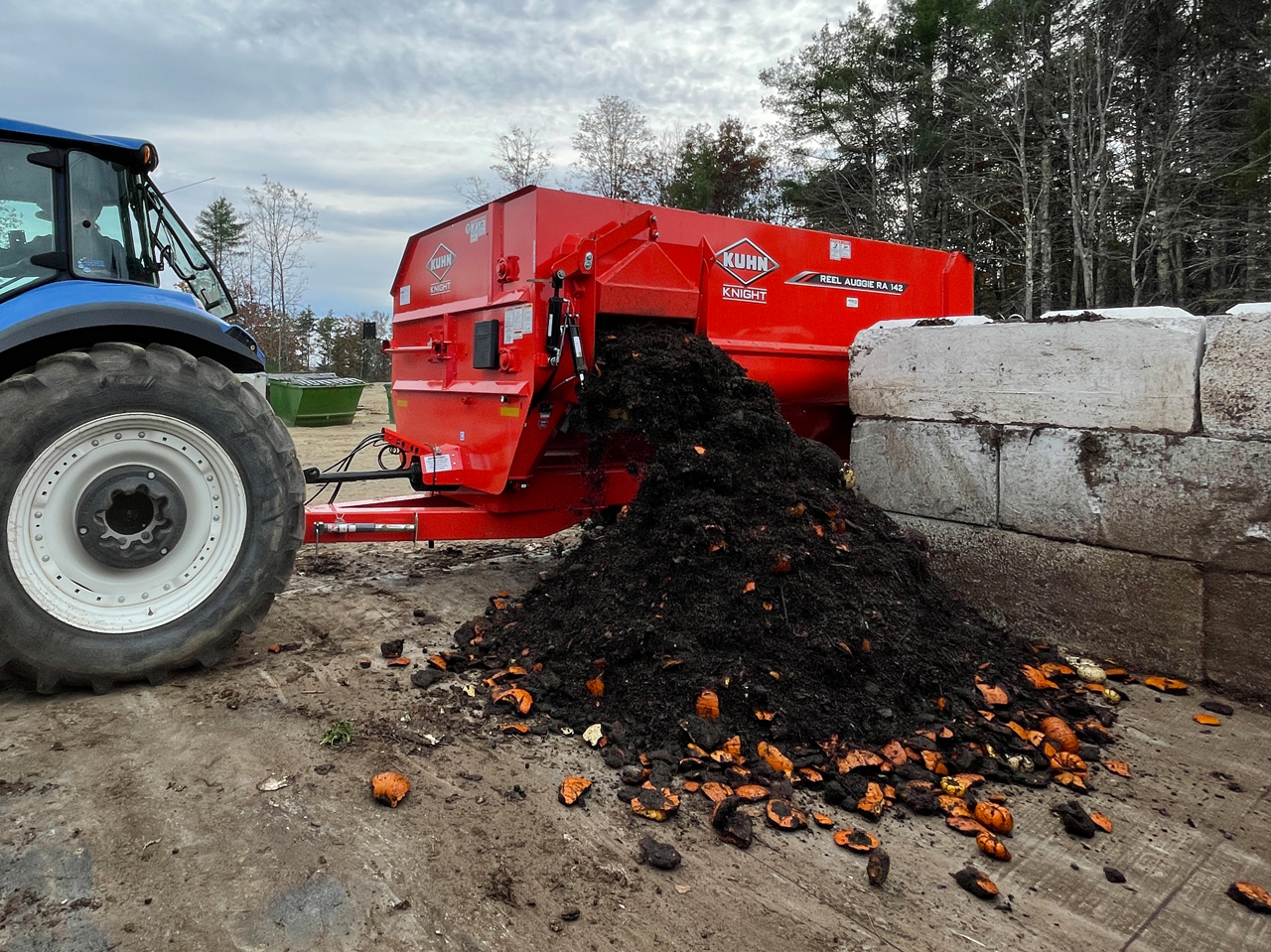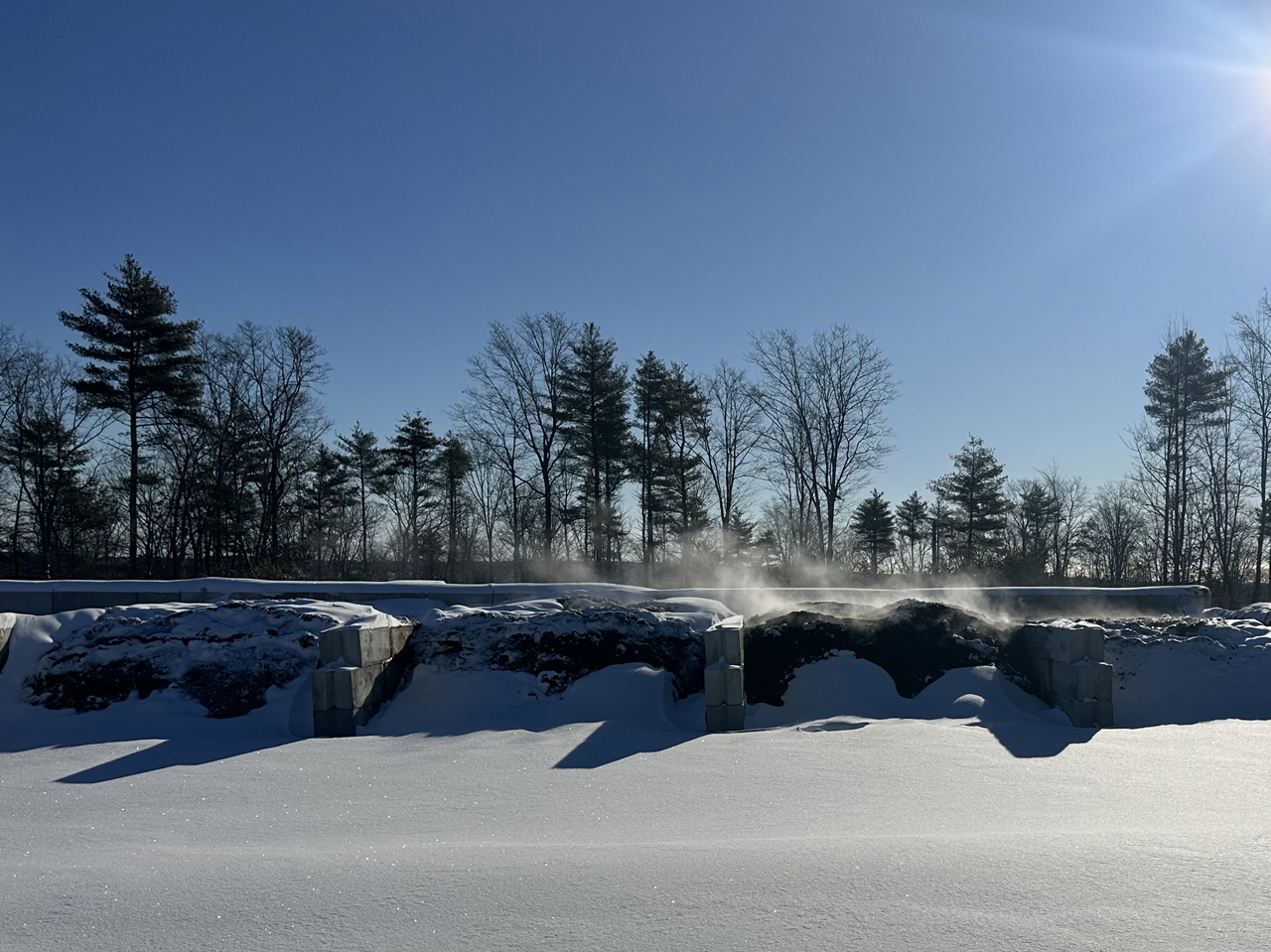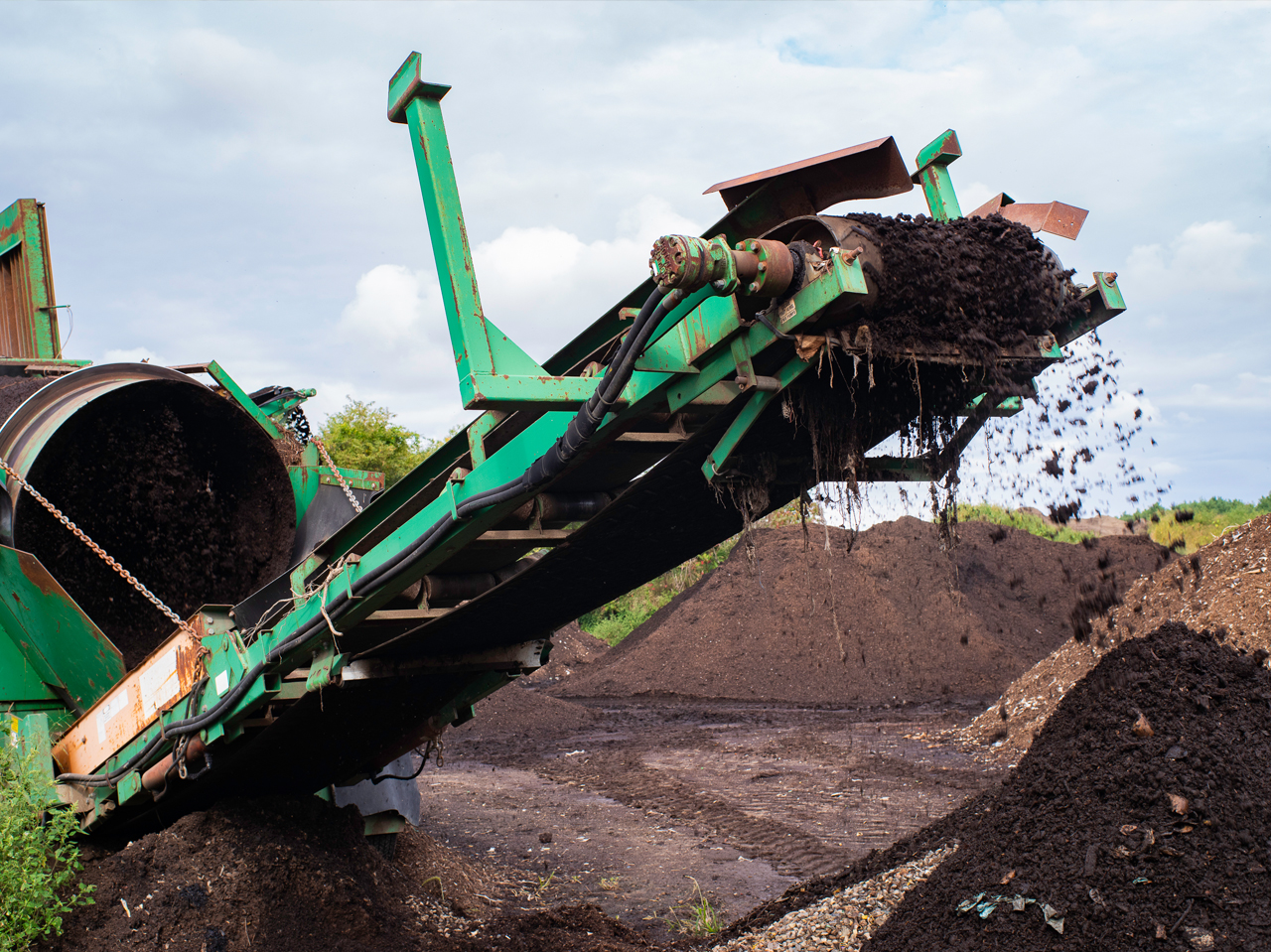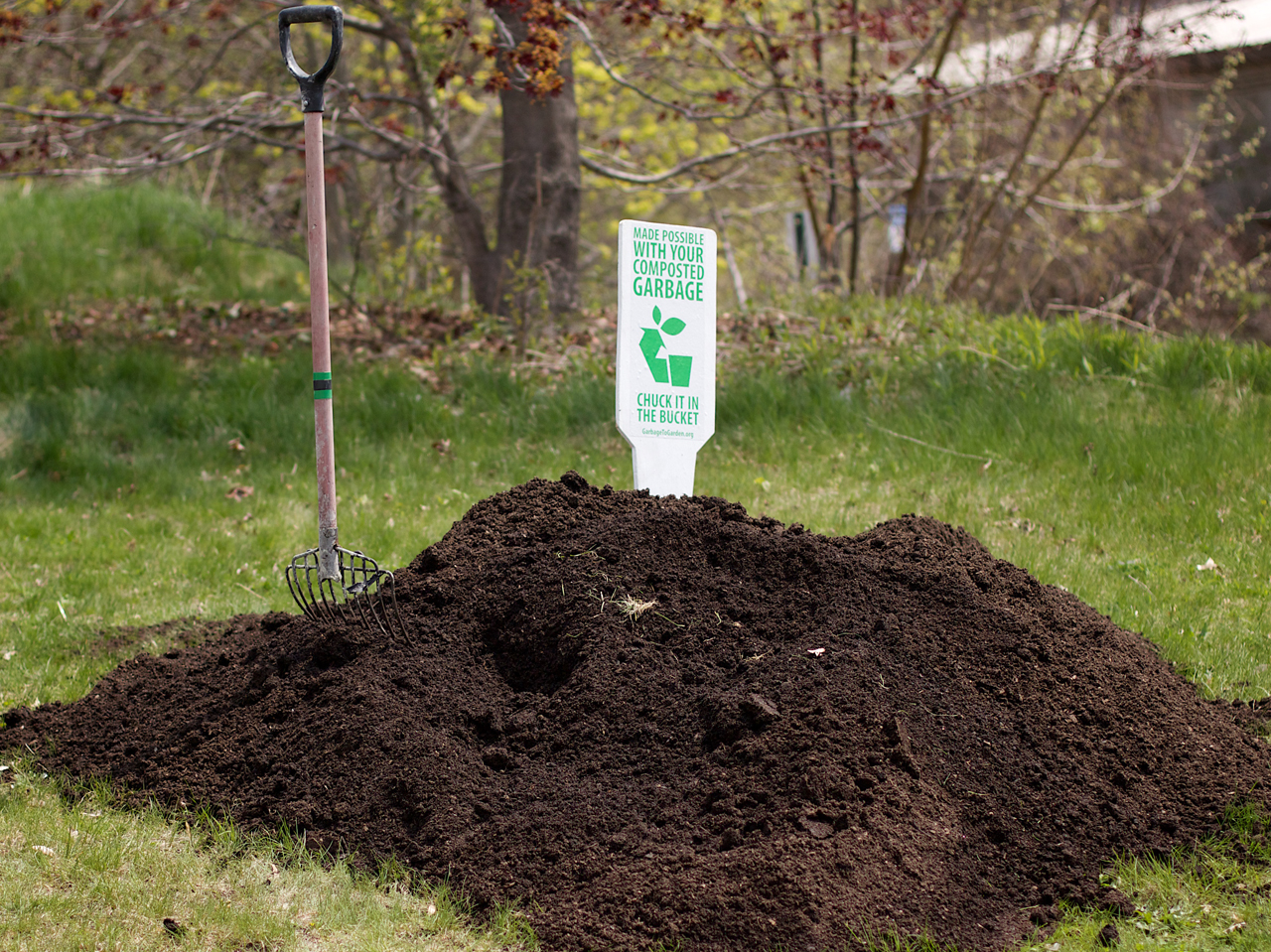Composting at local farms to create nutrient-rich compost
ALL food scraps and compostables collected in Medford's municipal curbside composting program are composted at local area farms. Composting prevents our food scraps from going to waste, recycling them instead to return them to our local soil. Composting has numerous benefits for our environment and our community. Decomposing organic material, which makes up roughly 40% of the waste in landfills, is a major contributor of greenhouse gases. Keeping compostables out of our landfills avoids these emissions, and extends the lifetime and capacity of our landfills.
When used as an amendment, compost improves the long-term health of soil, with benefits for air and water quality, too. Compost boosts soil biodiversity, to the benefit of the plants growing there, and the ecosystem. Healthy soil is more resilient against drought, as it is better equipped to hold water. This prevents erosion and filters groundwater, preventing runoff from ending up in our waterways. Composting benefits our air quality by avoiding greenhouse gases and by contributing to healthy soil that serves as a carbon sink – effectively drawing CO2 out of the atmosphere. Participants are able to purchase finished bagged compost for use in their own garden - contact customer service to learn more.
This Medford program puts a priority on processing ALL organic waste via composting at local farms. In the rare event of high contamination, a truck may be rerouted to the CORe facility in Charlestown for recycling by anaerobic digestion, as their facility is equipped to remove contamination – however, thanks to residents vigilance following our list of accepted items, every load to date has been composted.
COMPOSTING
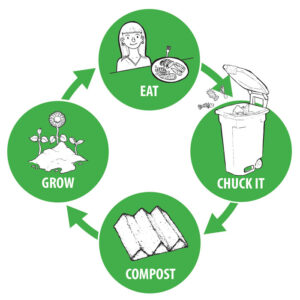
Composting is essentially a managed process of decomposition. By creating optimal conditions for thermophilic bacteria to thrive, we enable an efficient and effective decomposition of organic materials. The result is a nutrient-rich, high-quality soil amendment. The primary composting method used by our composting partners is windrow composting.
Collected food scraps are mixed with leaf and yard waste, manure, and forestry byproducts such as sawdust, in long piles called "windrows." These active compost piles naturally reach temperatures over 131 degrees Fahrenheit because of the energy produced by heat-loving bacteria called thermophiles. These high temperatures and microorganisms can separate complex organic materials quickly, eliminating the risk of pathogens and disease. It is because of this we can accept items such as meat, dairy, and bones, which should not be included in a home compost system.
To maintain proper aeration and moisture levels, the piles are turned with loaders and excavators. After a curing phase, the compost is screened and tested to ensure a high quality product. Residents that participate in Medford's curbside composting program will be able to log into their online account to purchase bagged local compost for delivery.


